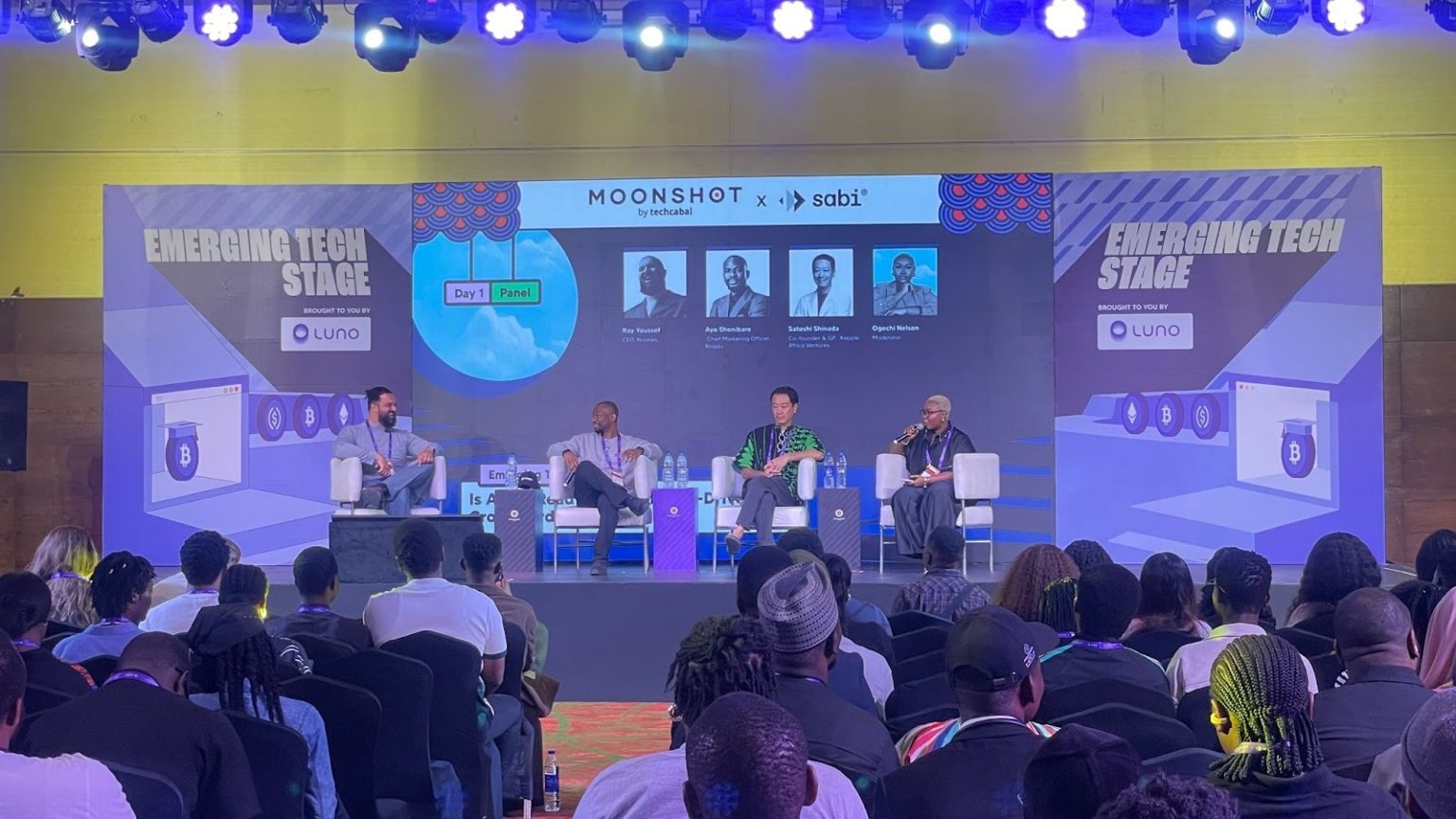Each year, Moonshot by TechCabal feels less like a conference and more like a gathering of Africa’s most curious minds — founders, creatives, policymakers, and dreamers building the future of the continent’s digital landscape.
Last year, over 3,000 innovators, founders, and investors gathered in Lagos to exchange ideas, build partnerships, and chart Africa’s digital future.
This year’s edition, themed Building Momentum, took that energy even further, bringing together thousands once again at Eko Convention Centre in the heart of Victoria Island.
From thought-provoking panels to creative showcases and late-night mixers, Moonshot 2025 reminded me why it’s easily one of the most anticipated gatherings on the continent, and why everyone who’s a part of the ecosystem needs to be there.
Walking into this year’s event, the atmosphere was a mix of optimism, urgency, and ambition. The air buzzed with possibility, the kind that comes when doers and dreamers gather under one roof, not just to discuss the future, but to shape it and learn from each other.
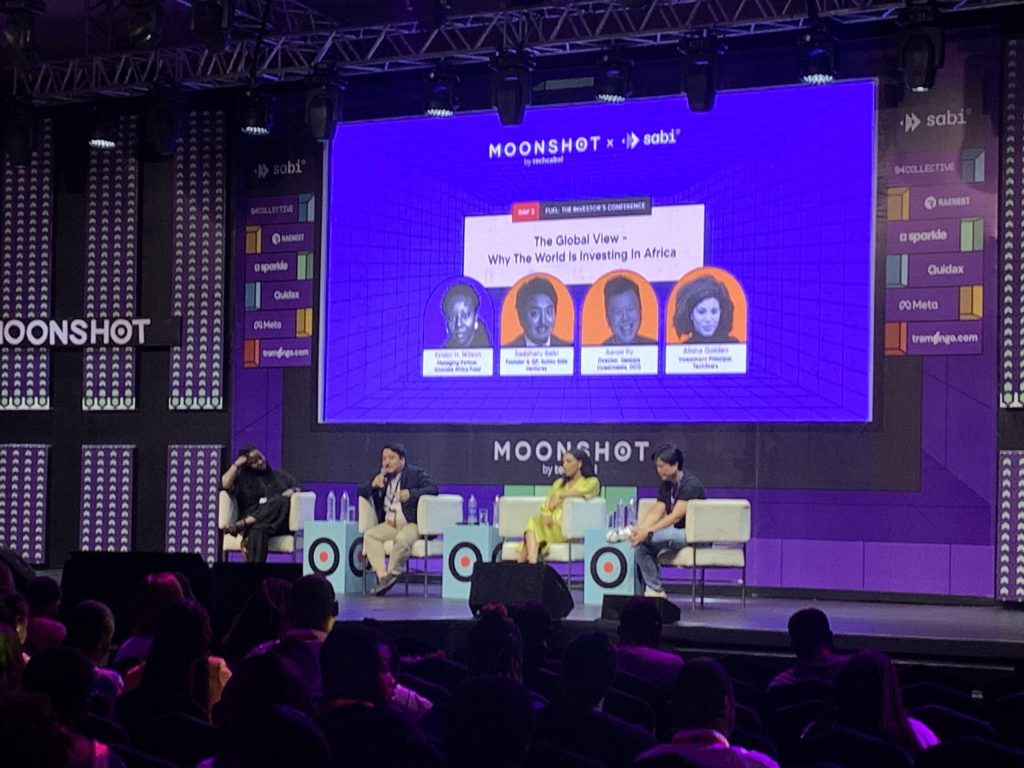
What struck me wasn’t the size of the crowd, but the texture of the conversations. You could feel an ecosystem trying to make sense of its next chapter: how to sustain growth, rebuild confidence, and tell its own stories with conviction.
Everywhere you turned, there was purpose. Young people were using the event to navigate careers, ask questions, and find their entry points into tech. Professionals came to reconnect with peers and test new ideas.
Ecosystem enablers—the accelerators, hubs, and investors—were mapping the pathways to scale. Founders and startups were pitching, learning, recalibrating. Policymakers, often seen as distant observers, were listening closely, taking notes, and meeting builders where they actually are.
Moonshot felt like a living map of Nigeria’s and Africa’s innovation journey: ambitious, resolute, full of potential, and of people trying, in their own ways, to push the story forward.
The event’s nine content tracks — Main Stage, Startup Stage, Future Stage, Creative Economy, Technical Workshop, FUEL Station, Roundtable Room, Cleantech, and Policy & Regulation — each explored a different dimension of Africa’s momentum.

Together, they formed a mosaic of the continent’s ambition: the Main Stage unpacked vision and leadership; the Startup Stage wrestled with growth and resilience; the Future Stage explored the frontier of AI, blockchain, and next-gen tech; the Creative Economy track celebrated storytelling and cultural capital; the Technical Workshops turned ideas into application; the FUEL Station connected capital to opportunity; the Roundtables fostered deep policy and investment dialogue; and the Cleantech sessions grounded innovation in sustainability.
Events like Moonshot have a way of sweeping you up — the energy, the optimism, the sense that every conversation could spark the next big thing. But beneath the excitement lies a quieter truth: navigating gatherings like this takes strategy. It’s not enough to show up; you have to show up prepared.
The real skill is in filtering the noise, identifying who and what truly aligns with your goals, and building relationships that can outlast the conference lights. The difference between leaving inspired and leaving overwhelmed often comes down to how deliberately you engage.
If you’re thinking of attending Moonshot next year, or similar industry events, especially in this –ember season where you’re bound to see familiar faces at multiple conferences, consider these reflections from Moonshot 2025 as a guide.
From my vantage point, these were the lessons that lingered, the moments that mattered, and the takeaways that traveled with me long after the microphones and stage lights were switched off.
1. The Power of Perspective
Panels this year carried a different charge: Less performance, more honesty.
African founders spoke about the discipline of building through market uncertainty, investors talked about conviction in tough cycles, policymakers listened to the ecosystem’s needs, and their frustrations. What stood out wasn’t the celebrity of the speakers, but the candor in their stories.
When a product lead from a major tech company spoke about failure as a design principle, the room didn’t applaud. It nodded in agreement, in understanding, in relief.
If you’re a founder or professional attending future editions, treat panels as catalysts. These sessions aren’t just conversations; they’re insight engines. Listen for the questions behind the answers, the data points that hint at emerging trends.
Each discussion holds the potential to unlock your next opportunity or redirect your focus toward something you hadn’t considered before. Take notes. Reflect on what resonates and why. Don’t just collect soundbites; translate insights into next steps for your business or career. The value of these moments lies not in inspiration but in application.
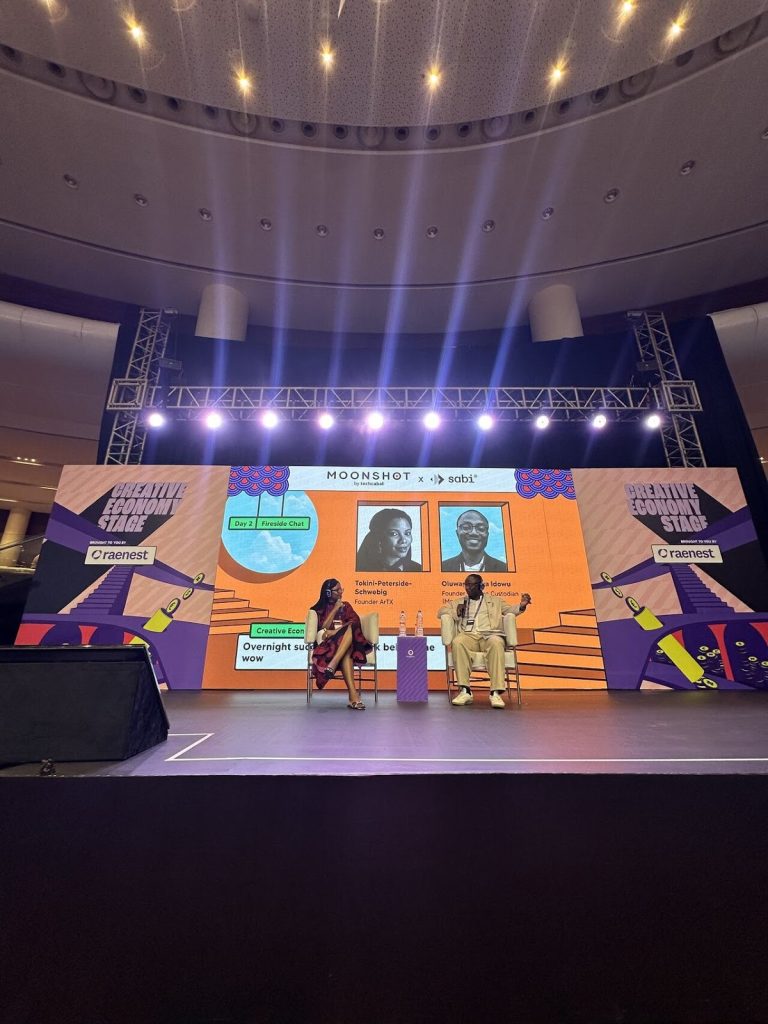
2. Intimate Conversations with Women Shaping the Future
Some of the most powerful moments at Moonshot 2025 didn’t happen under bright stage lights, but in quiet, intentional spaces where women leading across sectors shared their stories with openness and candor. ART X Lagos’ Tokini Peterside-Schwebig’s The Work Behind the Wow session highlighted the invisible labor of building legacy.
Ire Aderinokun, in From Self-Taught Coder to Global Expert: How Ire Did It, offered a deeply personal roadmap for self-directed learning and perseverance in tech. My Father’s Shadow film producer Funmbi Ogunbawo’s The Power of Local Narratives in Global Cinema explored how African filmmakers are reclaiming agency through story ownership, while Wimbart’s Jessica Hope’s The PR To Build Momentum underscored how storytelling and perception shape entire markets.
At the Creative Economy Stage, Tokini Peterside-Schwebig, founder of ART X Lagos, spoke with OluwaMayowa Idowu of The Culture Custodian and The Overnight Success Podcast about The Work Behind the Wow. Their exchange was an unvarnished reflection on what it truly takes to build a cultural institution: the persistence, the doubt, and the discipline of creation.
Nearby, Ebi Atawodi, Senior Director of Product Management at Google, captivated a small crowd during her talk, Designing for Billions: What Big Tech Teaches About Impact. Her message was simple but profound: design for one person, and you can eventually impact billions.
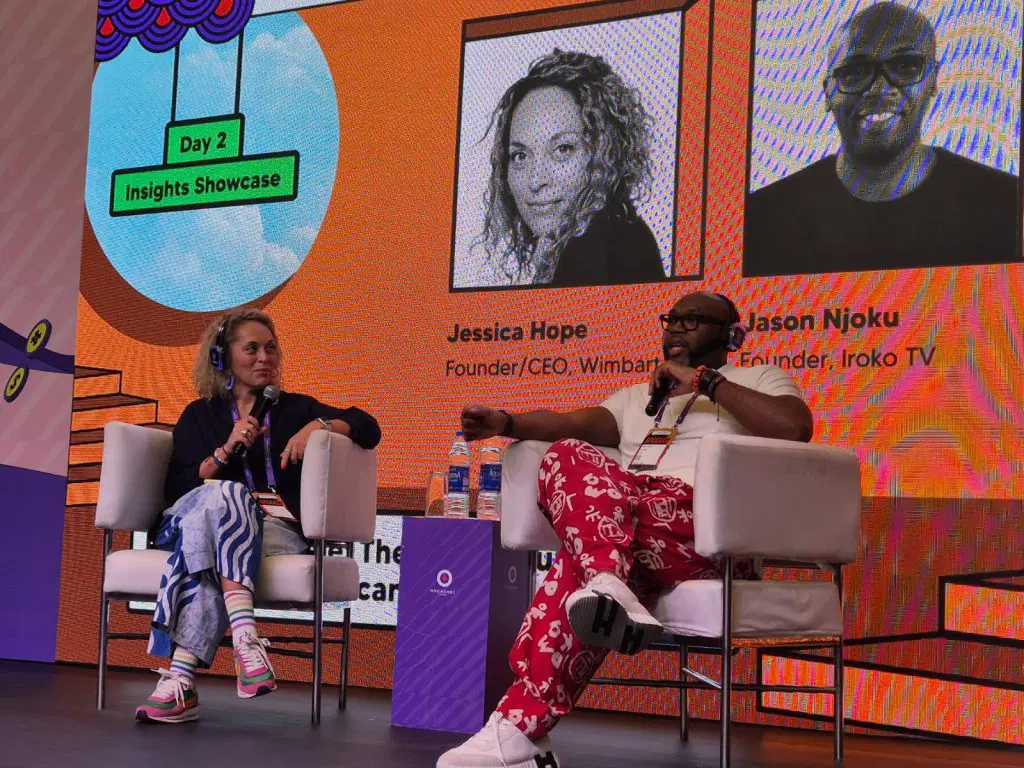
For the young founders, artists, and technologists listening, both women modeled a kind of leadership that blended ambition with empathy. Atawodi’s emphasis on “little wins” and consistency felt like a quiet rebuttal to the culture of instant success. Peterside’s reflections reminded creatives that impact often requires patience and faith in the process. These weren’t just sessions; they were lessons in resilience, integrity, and the art of building something that lasts.
If you’re attending future editions, seek out the smaller circles, the side sessions, fireside chats, and one-on-one exchanges. They often hold more insight than any keynote. Listen for the vulnerability behind success stories; that’s where the real learning lives.
For women attending future summits, these moments serve as a reminder: the most transformative connections often happen in smaller, more intimate spaces. Seek out conversations led by women whose journeys mirror your own or challenge you to think differently.
Don’t be afraid to introduce yourself, to ask the hard questions, or to share your story. In rooms that can sometimes feel overwhelming or dominated by louder voices, presence itself is power.
3. The Creative Economy Showcase
The Creative Economy Showcase was where Moonshot’s tagline, Building Momentum, came alive. The stage brought together storytellers, coders, publicists, and policy thinkers to examine how Africa’s creative industries are not just driving culture but defining new economies.
Anchored by David Adeleke’s presentation of The Africa Creator Economy Report by Communiqué, the showcase reframed creativity as a pillar of innovation, not an afterthought. His session illuminated how creators are becoming businesses in their own right, and how better data, funding structures, and intellectual property frameworks can sustain that growth.
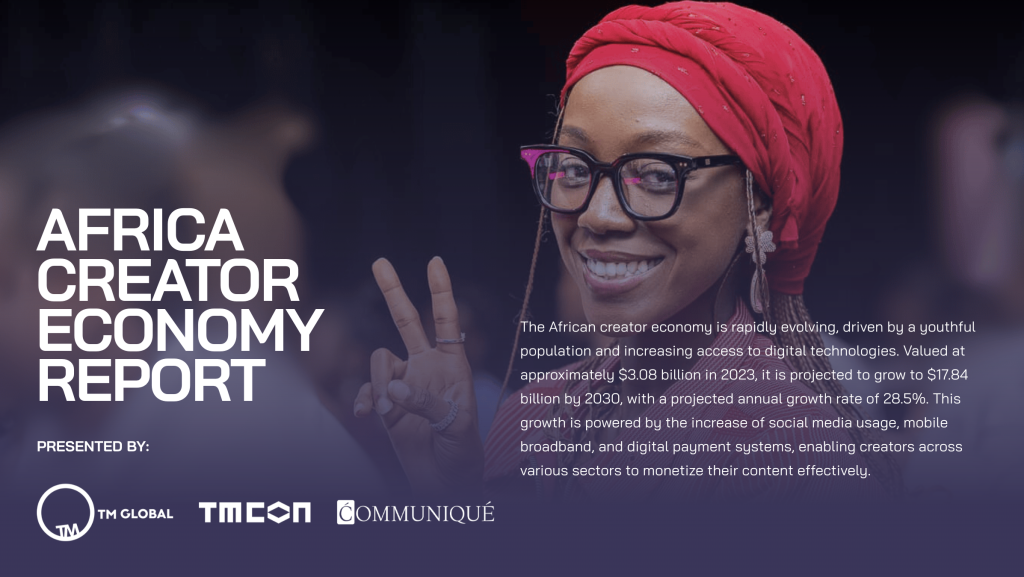
Across the two days, the Creative Economy stage was a microcosm of Africa’s soft power in motion. Each conversation blurred the lines between creativity and technology, reminding attendees that innovation doesn’t only happen in labs or incubators, it also happens in studios, podcasts, writers’ rooms, and on screens.
If you’re drawn to Africa’s creative ecosystem, make the Creative Economy stage your anchor at future Moonshots. It’s where art meets policy, where code meets culture, and where the continent’s next creative billion-dollar stories begin.
4. Networking, Not Noise
The best conversations didn’t happen on stage; they unfolded in corners, corridors, and queue lines. Each one carried a sense of purpose, a quiet understanding that collaboration, not competition, will define the next wave of African tech. Moonshot 2025 reminded me that connection isn’t about proximity, it’s about precision.
The lounges, mixers, and deal rooms weren’t just social spaces; they were strategy grounds. I met founders refining their pitches over palm wine, investors comparing notes on regulatory shifts, and designers swapping ideas about storytelling.
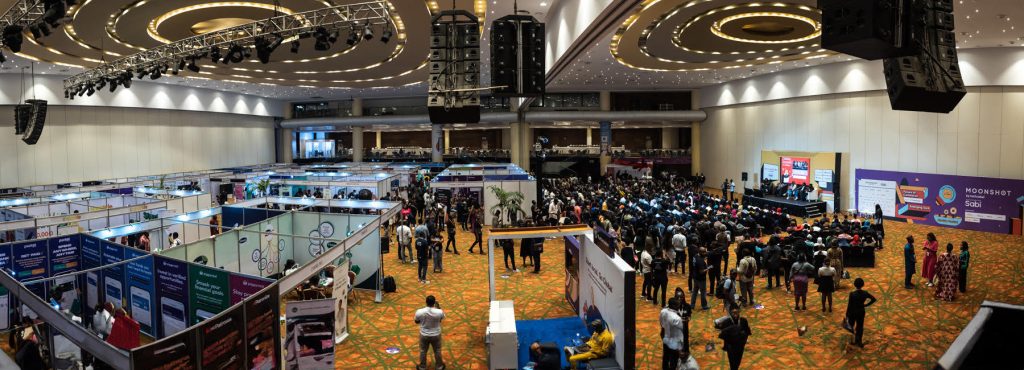
If you’re coming to Moonshot primarily to meet and connect with others in the ecosystem, plan for intentionality. Don’t try to meet everyone, you’ll easily get overwhelmed by the incredible number of people flowing through the space.
Meet purposefully. Research who or what companies and brands will be present, identify who aligns with your goals, and follow up within days, not weeks. A meaningful post-event message can achieve more than a dozen random introductions.
5. Cross-Pollination: Learning Beyond Your Niche
One of the most underrated parts of Moonshot 2025 was how much learning happened between industries. Sitting in on sessions outside my field, from climate finance to crypto solutions, revealed just how interconnected Africa’s innovation story really is.
The insights you gain from a sector you don’t work in can often challenge the way you think about your own, and help you see problems and solutions you might have otherwise missed.
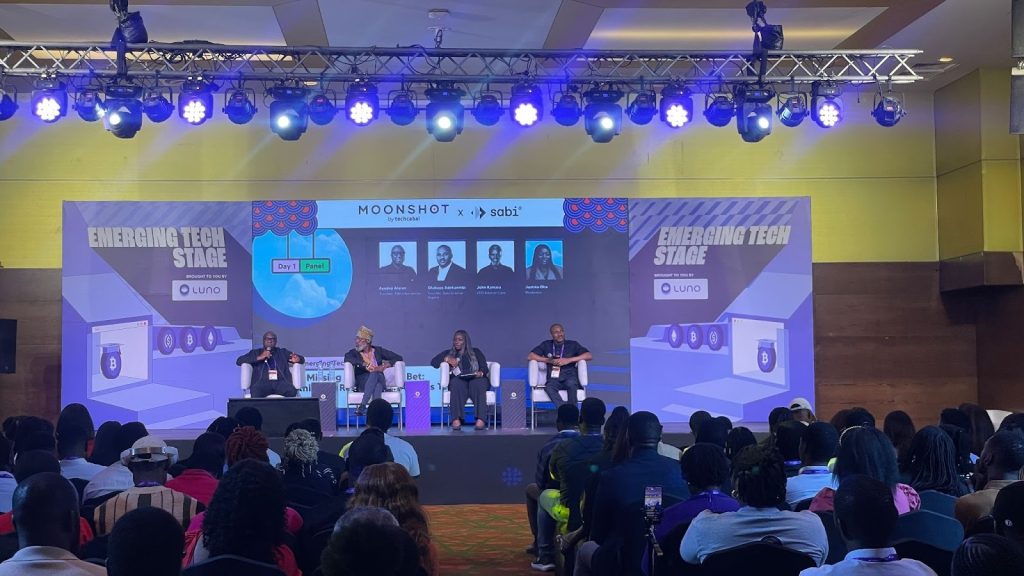
For professionals, this kind of cross-pollination is invaluable. The founder who understands policy will scale smarter, the creative who grasps technology will build more sustainably, and the investor who listens to climate innovators will see new opportunities for impact. Growth happens when curiosity moves beyond comfort zones.
So the next time you attend a summit like Moonshot, wander into a panel you didn’t plan for. Talk to someone whose work you don’t fully understand. Inspiration often hides in the unfamiliar, and the best ideas are born at the intersections.
Leaving Moonshot 2025, one thing became clear: this isn’t just a conference, it’s a mirror for the continent’s progress and possibility. The real work begins after the panels end: in the follow-ups, collaborations, and quiet moments of reflection that turn inspiration into execution.
For those who missed it, or those already counting down to next year, don’t just scroll through highlights, engage with the insights. Carry them forward. And if you’re looking for your next opportunity to learn, connect, and grow, check out Labari’s curated list of upcoming African tech and creative events. Your next Moonshot moment might be waiting there.



